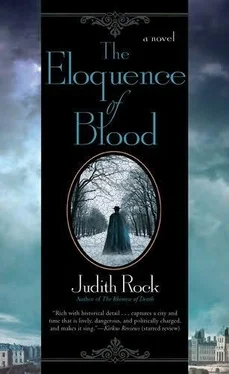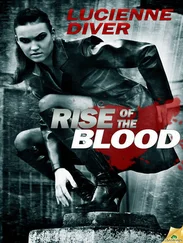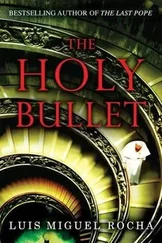Judith Rock - The Eloquence of Blood
Здесь есть возможность читать онлайн «Judith Rock - The Eloquence of Blood» весь текст электронной книги совершенно бесплатно (целиком полную версию без сокращений). В некоторых случаях можно слушать аудио, скачать через торрент в формате fb2 и присутствует краткое содержание. Жанр: Исторический детектив, на английском языке. Описание произведения, (предисловие) а так же отзывы посетителей доступны на портале библиотеки ЛибКат.
- Название:The Eloquence of Blood
- Автор:
- Жанр:
- Год:неизвестен
- ISBN:нет данных
- Рейтинг книги:5 / 5. Голосов: 1
-
Избранное:Добавить в избранное
- Отзывы:
-
Ваша оценка:
- 100
- 1
- 2
- 3
- 4
- 5
The Eloquence of Blood: краткое содержание, описание и аннотация
Предлагаем к чтению аннотацию, описание, краткое содержание или предисловие (зависит от того, что написал сам автор книги «The Eloquence of Blood»). Если вы не нашли необходимую информацию о книге — напишите в комментариях, мы постараемся отыскать её.
The Eloquence of Blood — читать онлайн бесплатно полную книгу (весь текст) целиком
Ниже представлен текст книги, разбитый по страницам. Система сохранения места последней прочитанной страницы, позволяет с удобством читать онлайн бесплатно книгу «The Eloquence of Blood», без необходимости каждый раз заново искать на чём Вы остановились. Поставьте закладку, и сможете в любой момент перейти на страницу, на которой закончили чтение.
Интервал:
Закладка:
“No, maitre,”Walter Connor said. Connor was one of Charles’s rhetoric students and dancers, and the journey to his home in Ireland was too long for the short holiday. “The worse the weather, the more they need. They’ll come.”
He had hardly finished speaking before three ragged men and a woman appeared at the doors, as though they’d conjured themselves from the air. Charles stepped forward, greeted and blessed them, nodded at the students, and stood back. His role now was to see that the boys distributed the alms courteously and evenhandedly, intervening only if there was need.
The crowd of beggars grew quickly. Connor and three other boys handed out loaves, and the rest offered the worn but serviceable clothing and shoes from the store they’d brought with them. One of the boys held out a long manteau of soft brown wool, hardly worn, to a thin, pockmarked woman. She snatched it from him and held it against her chest, stroking the cloth, wide-eyed at her good fortune. Watching her, Charles thought of the young butcher in the artisans’ Congregation who had given it. Knowing that the man’s wife had recently died in childbirth and that he had other small children to provide for, Charles had urged him to sell it to the secondhand clothing dealers. But the butcher had pushed it into Charles’s arms, saying brokenly that it was his wife’s and that she had always been tenderhearted to the poor.
Charles’s thoughts jumped from that death to Martine’s. Forcing aside his memory of her lifeless body on the bloodfouled floor, he told himself that even if the drunken maid had not left the house door open, only forgotten to bar it, it was possible that someone had a key, honestly or by stealth. Gilles Brion, for example, could easily have come by a key. His father, as the family notary and the girl’s guardian, surely had a key. Charles took a mental step back and reconsidered the elder Brion. Whom no one admitted to seeing since yesterday. Who had apparently lied about searching for the lost donation at the Chatelet. But why would Henri Brion lie about searching for the donation? He had forced his son to court the girl for the Mynette money. Why would he intentionally conceal the document that ensured that the money would come to her? And if the donation was not found, presumably the Jesuits would get the money. Which was the last thing Henri Brion would want. Those thoughts led Charles back to the younger Brion. If Gilles had killed Martine, what would he do next? Had Henri Brion vanished because he knew his son had killed her and was busy helping him get out of France, busy working out a pretext for the boy’s sudden absence? But would Henri Brion try to save his son if the boy had killed the pretty goose and lost the family’s chance at the golden egg? A son-an only son, as far as Charles knew-was a son, though. For some men, nothing mattered more than that.
“I don’t want that, give me that thicker one, the green one there, you bloated whelp, hand it over!”
Charles came abruptly back to the almsgiving and was at the doors before the angry demand reached its end. A bearded old man leaning on a stick had flung a brown coat onto the table and was grabbing for a green one held by one of the younger students. The boy had backed away from the shouting beggar and was looking anxiously at Charles.
“Calm yourself, monsieur.” Charles took the coat from the boy. “And have some respect for the Virgin’s alms. We are glad to give you this coat, no need to grab for it.”
The man glowered at him, his eyes hollow under straggling gray brows. “No need to grab from them with money and feasts on their table every day? Them with their golden boxes, while other men starve in the street!”
Golden boxes? Charles peered more closely at the dirty seamed face and recognized the man who had attacked the Conde’s reliquary on Christmas Eve. He looked for the young companion who had seemed to be the old man’s keeper, but didn’t see him.
“That box is not ours to sell, monsieur. We must do with it what its giver asked. What is your name?”
The man froze like a wary animal. Then his sinewy hand shot out and snatched the green coat, and he limped away with surprising speed. The boys began to murmur indignantly, but Charles hushed them.
“Do you think men always control their fate?” he asked reprovingly, and reminded them of all the things that could bring an ordinary man to begging. Sin, surely, but also simple ill luck, sickness of body or mind, all the misfortunes that crushed a man as though he were a flea. No matter how much the flea might pray, some impious voice said in Charles’s mind. Then a clutch of women surrounded by crying, shivering children pushed their way to the front of the crowd, and for the next half hour, he and the boys were too busy for thinking.
By the time the store of alms was gone, the final blessing given, and the great doors shut, the short winter afternoon was already beginning to fade. The boys put the walnut table back in the salon and gathered around Charles. He led them in prayers of thanksgiving to the Virgin, finished with an Ave, and dismissed them to their waiting tutors. Before anyone else could want him for something, he was through the postern and on his way to the Place Maubert police commissaire and the rue Perdue.
The commissaire was not at home. His sergent, of course, had no idea where Lieutenant-General La Reynie might be found. Henri Brion was still not at home, either. The maidservant took him up to the salon, where Mlle Brion and M. Callot rose from their chairs on either side of the fire to greet him. Isabel Brion was dressed in black now. Her eyes were red and her face tired and drawn. She looked a different creature from the rosy, exuberant girl Charles had met the day before. Callot was sober and nearly as subdued as his great-niece. He placed a cushioned and fringed chair for Charles between the other chairs, and they all sat quietly until Charles broke the silence.
“Monsieur Callot, your servant says that Monsieur Henri Brion is not yet at home.”
“No. He is not.”
“Where do you suppose he is?”
“Nowhere I care to mention before my great-niece.”
Charles decided that he would have to leave finding the elder Brion to Lieutenant-General La Reynie, but before he could ask about Gilles, Isabel Brion spoke.
“Martine is to be buried on Monday morning, maitre. Her funeral Mass will be at Saint-Nicolas du Chardonnet, do you know it? It is just a little south of the Place. Will you-oh-but no, forgive me-” She colored and looked away, and Charles thought he knew why.
“I know what is being said about her death, mademoiselle,” he said gently. “But if my rector permits, I will be there.”
M. Callot spoke from the flickering shadows on Charles’s other side. “And that which is being said, maitre, do you swear it is false?”
His great-niece gasped. “Uncle Callot! Be quiet! Of course it is false, you have only to look at him to know he tells the truth!”
“I am not a young girl, Isabel, to have my mind made up by a handsome face.”
Charles felt himself go as red as the flames in the fireplace. Thankful for the room’s dimness, he turned toward Callot. “I assure you, monsieur,” he said evenly, “the Society of Jesus had nothing whatever to do with Mademoiselle Mynette’s death. You well know that there are always those ready to accuse us of any ill thing that happens.”
Callot grunted. “But money is money. A significant sum of money, which more than a few would do much to have.”
“Including your nephew, I understand.”
The old man bridled at Charles’s riposte. “So you’ve learned more about the unhappy courtship my nephew forced on his son? Ah, well, it is true enough.”
Charles decided that bluntness was the fastest way to what he needed. “How much did young Monsieur Brion dislike being forced into courtship?”
Читать дальшеИнтервал:
Закладка:
Похожие книги на «The Eloquence of Blood»
Представляем Вашему вниманию похожие книги на «The Eloquence of Blood» списком для выбора. Мы отобрали схожую по названию и смыслу литературу в надежде предоставить читателям больше вариантов отыскать новые, интересные, ещё непрочитанные произведения.
Обсуждение, отзывы о книге «The Eloquence of Blood» и просто собственные мнения читателей. Оставьте ваши комментарии, напишите, что Вы думаете о произведении, его смысле или главных героях. Укажите что конкретно понравилось, а что нет, и почему Вы так считаете.












